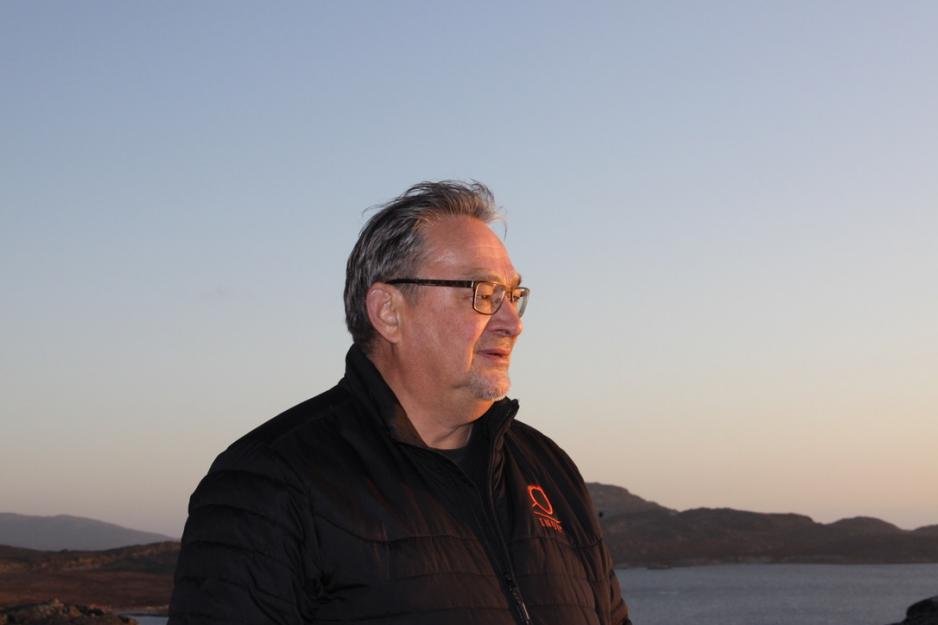Kuupik Kleist: We Should Take the Danish Realm More Seriously

10 years ago, then Premier of Greenland, Kuupik Kleist, was at the helm when the Act on Greenland Self Government entered into force. Photo: Marc Jacobsen
The Act on Self Government has since 2009 only been implemented by something like a half percent, says Kuupik Kleist. This is part two of the exclusive interview with Greenland’s former Premier.
10 years ago, then Premier of Greenland, Kuupik Kleist, was at the helm when the Act on Greenland Self Government entered into force. To mark this anniversary, High North News met Kleist for an exclusive interview about Greenland’s national development and the recent Arctic security changes. In this second part of the interview, Kleist reflects on Greenland’s political and societal developments during the past decade and the road forward towards further self-determination.
The first part of the interview can be found here.
Also read
What comes into your mind when you think back to the 21st of June 2009 when you introduced Self-Government in Greenland?
"The atmosphere was very different. Way more optimistic and progressive. Unfortunately, the Act on Self Government has since then only been implemented by something like a half percent. The subsequent governments have done everything they can to eliminate those initiatives which my government started, such as taking over of fields of responsibilities from Denmark. Today, I sometimes feel like I am stuck and cannot breathe."
Has anything positive happened during the same period?
"I am probably not the right person to ask that question to. Recently, I saw a newspaper headline saying that the population in Greenland is increasing. But behind those numbers was hidden a sad truth: whereas 1200 non-Greenlanders immigrated, 800 Greenlanders emigrated. Should one be happy about that? No! If the country’s citizens do not want to live in their own country there is something fundamentally wrong."
If the country’s citizens do not want to live in their own country there is something fundamentally wrong.
What is the reason why so many Greenlanders emigrate?
"The reasons provided by those emigrating were, for example, the low quality education and unstable governance. The group of so-called ethnically ’half-bloods’ – which I belong to – also stated that they feel that the national atmosphere has become so extremely uncomfortable that they do not want to live here anymore. Today, almost everything is measured on some kind of ethnicity parameter."
What are the perspectives for Greenlandic state-building?
"There is a lot of potential. No doubt about that. But in the concrete debate about independence it seems as if people are only interested in discussing the end-goal rather than focusing on the crucial steps towards it. Independence is often described as something which will bring salvation to the Greenlanders. That is utopia. Instead it is necessary to debate what we have to do to establish a sustainable society which functions on a wide array of areas: socially, economically, politically, educationally, labour-wise, governance-wise, etc. It is a cliché, but it is true: It is not the goal, but the process which is important."
If independence will not happen in the near future…
"It won’t"
... how can the Danish-Greenlandic relationship within the Danish Realm be developed so Greenlanders feel more at home?
"I just think that we should take the Danish Realm more seriously. If I were Danish Prime Minister, I would do all sorts of things to make sure that Greenlanders feel like “wow, it is really cool that we are part of the Danish Realm”. The cost is very low in comparison with what Denmark gets in return."
"I have always said to shifting Danish Prime Ministers: “If I were you then the Danish Realm would always be at the top of the agenda. I would do almost everything to make sure not to lose 98 percent of the geographical area of the Kingdom of Denmark."

Kuupik Kleist, former Premier of Greenland. Photo: Marc Jacobsen
Have you experienced any differences between shifting Danish governments’ approach to Greenland?
"My experience is that Danish social democratic governments are way more possessive than right wing governments. For instance, Anders Fogh Rasmussen’s very strict liberal ideas and praise of the individual’s freedom – and hence also freedom of peoples – were reflected in a more positive attitude towards Greenland’s wish for more self-determination. This was quite different from his predecessor, Poul Nyrup Rasmussen."
My experience is that Danish social democratic governments are way more possessive than right wing governments.
What about the current Danish social democratic government headed by Mette Frederiksen?
"We will see what the new social democratic government will bring to the table. There is obviously a way more intense international Arctic agenda that calls for new initiatives. Between Denmark and Greenland there is still also the unresolved question about who has the responsibility regarding the potential uranium exploitation and export."
"There are some heavy issues that should be discussed. At the moment, the issue of child abuse in Tasiilaq is something which the Danish government is providing further help to deal with. That will probably improve Greenland’s social policy considerably."
So, such an initiative may also enhance the Danish-Greenlandic relationship?
"Yes, to a large extent. Unfortunately, the Greenland nationalism simultaneously portrays Denmark as being an overlord rather than emphasizing the spirit inherent in the Self-Government Act which is a collaborative project between the countries. Instead of looking out for possible confrontations, one should emphasize this kind of good cooperation more."

